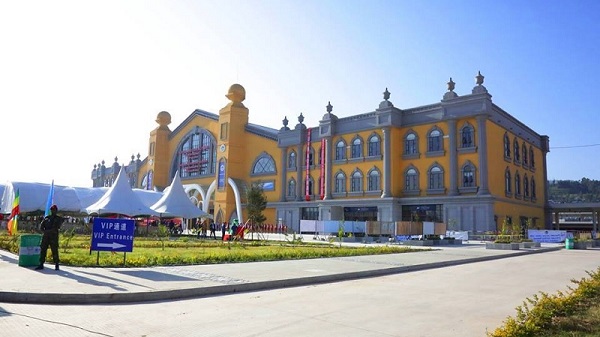
The Ethiopia-Djibouti Railway is expected to act as a catalyst in accelerating the economic growth of intra-African countries and realize the continent’s untapped commercial potential.
By Chen Ziqi (China Plus)
The Ethiopia-Djibouti Railway is the first international cross-border standard gauge electric railway in Africa, connecting the capitals of Ethiopia and Djibouti. With the help of two Chinese construction firms, the railway has been running since January this year. Despite bringing mammoth benefits to the local economy, the successful operation of the Ethiopia-Djibouti Railway also marks a milestone for China in accomplishing the transformation from Made in China to Operation by China.
The Ethiopia-Djibouti Railway was designed to enable landlocked Ethiopia to reach maritime trade routes, and it’s expected to act as a catalyst in accelerating the economic growth of intra-African countries and realize the continent’s untapped commercial potential. The Red Sea port of Djibouti is a crucial transport hub to Ethiopia since 90% of the country’s imports and exports depend upon it. Prior to the operation of the Railway, it took almost a week to get from Ethiopia to Djibouti. Aboudaker Omar Hadi is chairman of the Djibouti Ports and Free Zones Authority. He says “building the railway was a must”.
With a length of over 750 kilometers, the Ethiopia-Djibouti Railway has been successfully running since January 1, 2018. The speed of the passenger trains can reach 120 kilometers an hour, cargo trains 80 kilometers an hour. Now, the time needed to transport goods from the Ethiopian capital Addis Ababa to Djibouti has been cut from around 7 days to just 10 hours, saving two thirds of the cost.
This project not only boosts the regional economy and improves efficiency, it has also accelerated the transformation of Chinese railway building enterprises from constructor to railway operator. Built between 2011 and 2016, this railway line was the joint effort of a consortium of two Chinese firms, the China Civil Engineering Construction Corporation and the China Railway Group.
During the railway construction, a myriad of challenges and obstacles had to be addressed, such as dealing with unstable electric power, incomplete local laws and regulations, avoiding livestock trampling over the tracks, carrying out investigations and research into scientifically increasing the train’s speed and their capacity for freight weight, providing skills training to local employees and preparing for the final commercial operation.
Zhang Zhenhai is vice president of the Ethiopian branch of the China Civil Engineering Construction Corporation. He explains the importance of this project.
“Our fundamental goal was to build a railway that would stimulate the economic development of the region. Furthermore, being able to operate a railway line is the most important component of our company’s latest agenda and also helps extend our business scale.”
Continue reading this story at China Plus
